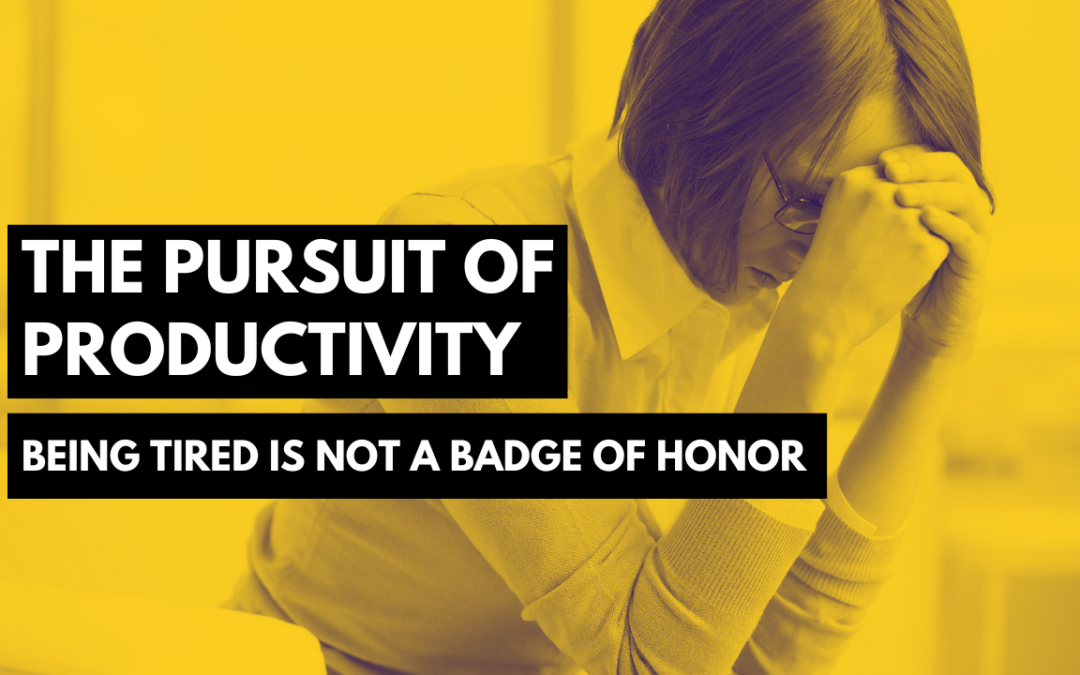Debunking the Myth that Being Tired is a Badge of Honor
In today’s fast-paced world, it’s not uncommon to hear people brag about how little sleep they get, as if exhaustion were a badge of honor. The glorification of sleep deprivation and overwork has become a pervasive part of our culture, with many equating being tired with being productive. However, in this article, we aim to challenge this prevailing mindset and shed light on the importance of rest, self-care, and the detrimental effects of chronic fatigue.
The Culture of Exhaustion
In our society, it’s almost a status symbol to declare how little sleep one gets. Phrases like “I’ll sleep when I’m dead” or “Burning the midnight oil” have become commonplace, perpetuating the belief that pushing ourselves to the brink of exhaustion is a mark of dedication and success.
The Fallacy of Productivity
Contrary to popular belief, chronic tiredness doesn’t equate to increased productivity. In fact, it often has the opposite effect. Sleep deprivation can impair cognitive functions, decrease creativity, and lead to poor decision-making. It also compromises physical health, weakening the immune system and increasing the risk of various illnesses.
The Importance of Rest
Rest is not a sign of weakness; it’s a fundamental human need. Getting an adequate amount of sleep is crucial for overall well-being. It allows the brain to consolidate memories, repair tissue, and release important hormones. Without proper rest, our bodies and minds suffer, leading to decreased productivity and diminished quality of life.
The Role of Self-Care
Self-care is an essential component of a healthy and balanced life. It includes activities that rejuvenate both the body and the mind, such as exercise, meditation, and spending quality time with loved ones. Neglecting self-care can lead to burnout and a perpetual state of exhaustion.
The Dangers of Burnout
Burnout is a real and serious consequence of overworking and chronic fatigue. It can manifest as physical and emotional exhaustion, cynicism, and reduced job performance. Left untreated, burnout can have long-lasting negative effects on one’s career and personal life.
Breaking the Cycle
To break free from the cycle of exhaustion, it’s essential to prioritize self-care and rest. Here are some practical steps to help you achieve a healthier work-life balance:
1. Prioritize Sleep
Make sleep a non-negotiable part of your daily routine. Aim for 7-9 hours of quality sleep each night. Create a comfortable sleep environment and establish a consistent sleep schedule.
2. Manage Stress
Identify stressors in your life and find healthy ways to manage them. This could include practicing mindfulness, seeking therapy, or engaging in stress-reducing activities like yoga or deep breathing exercises.
3. Set Boundaries
Learn to say no when necessary and establish clear boundaries between work and personal life. Avoid overcommitting and make time for activities that bring you joy and relaxation.
4. Practice Self-Care
Engage in self-care activities that nourish your body and mind. Exercise regularly, eat a balanced diet, and take breaks to recharge during the day.
5. Seek Support
Don’t hesitate to seek support from friends, family, or professionals if you’re struggling with chronic fatigue or burnout. You don’t have to face it alone.
Wrap Up
The idea that being tired is a badge of honor is a harmful misconception that can lead to burnout, decreased productivity, and a diminished quality of life. Prioritizing rest, self-care, and a healthy work-life balance are essential for our physical and mental well-being. It’s time to debunk the myth of exhaustion as a symbol of success and embrace a more balanced and sustainable approach to life and work.
Originally inspired by Jason Fried’s article here.

